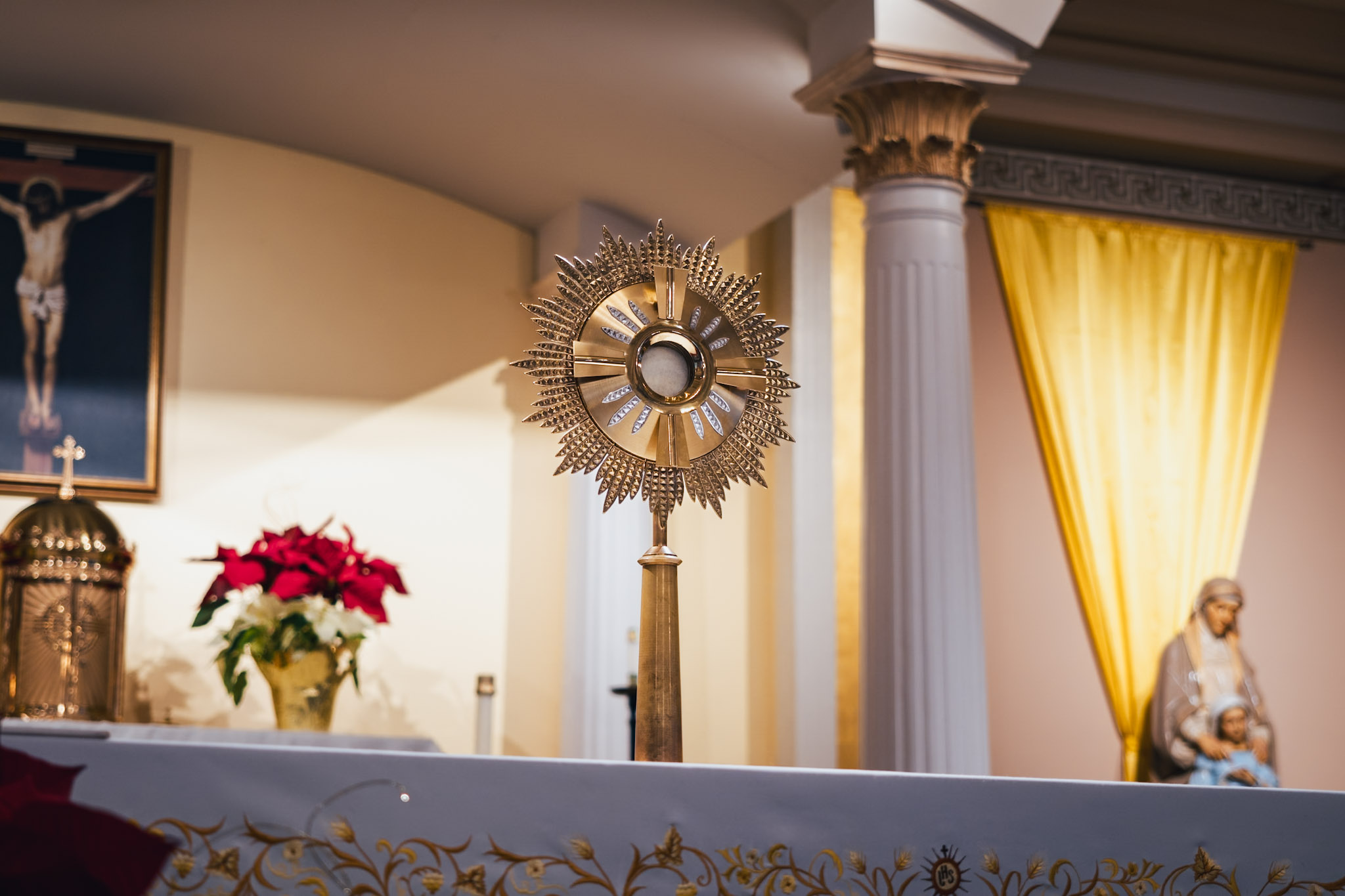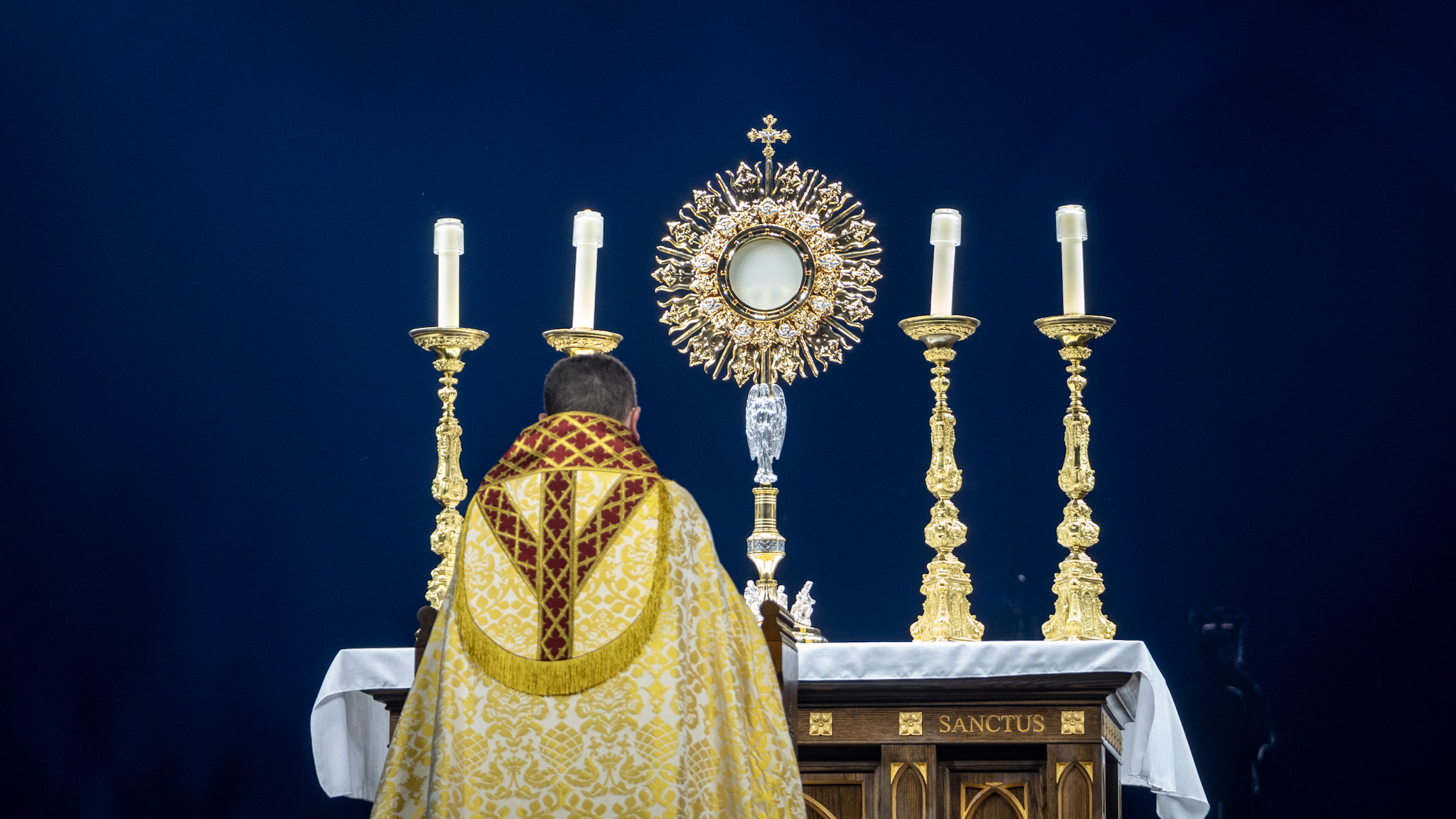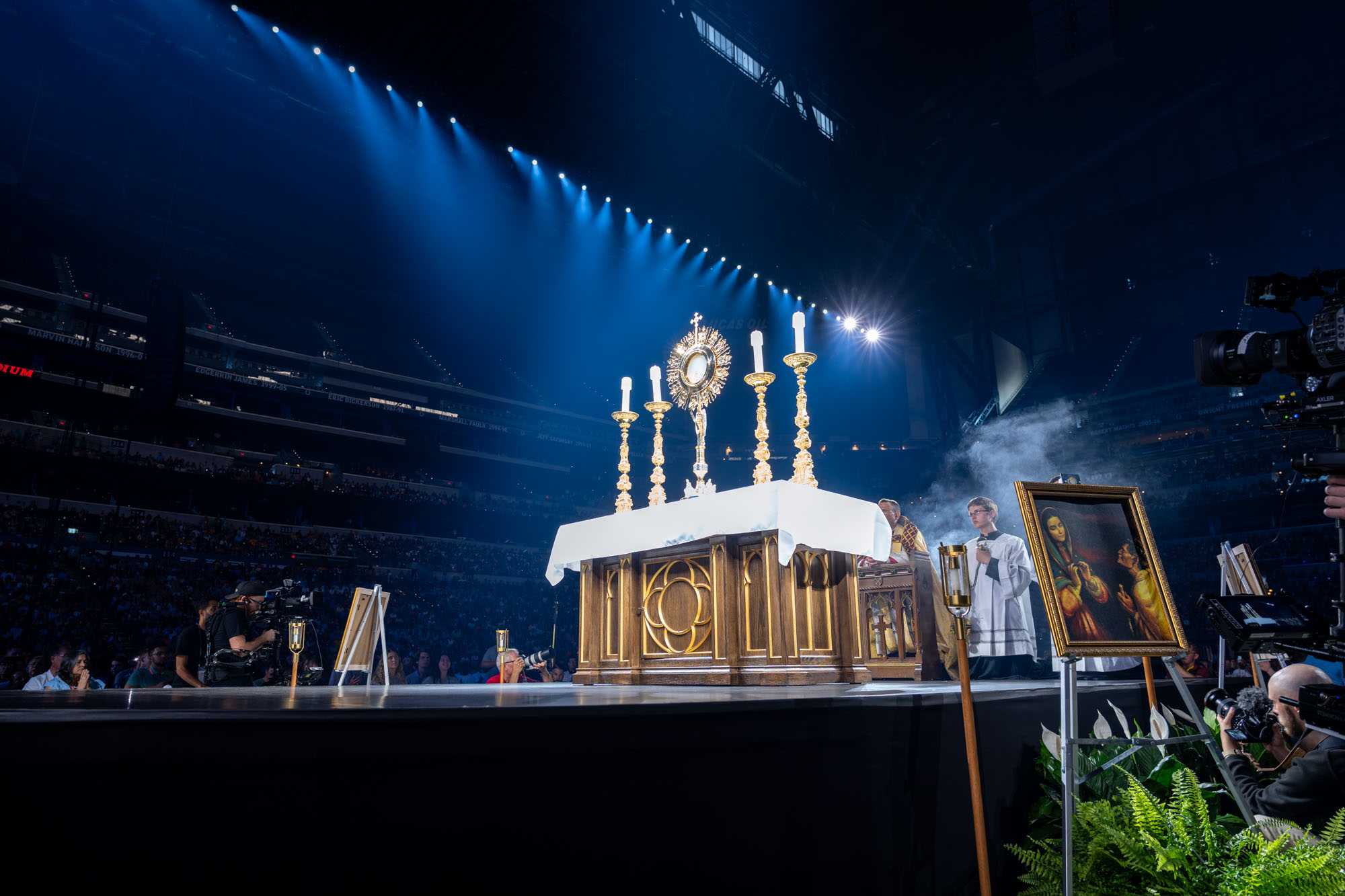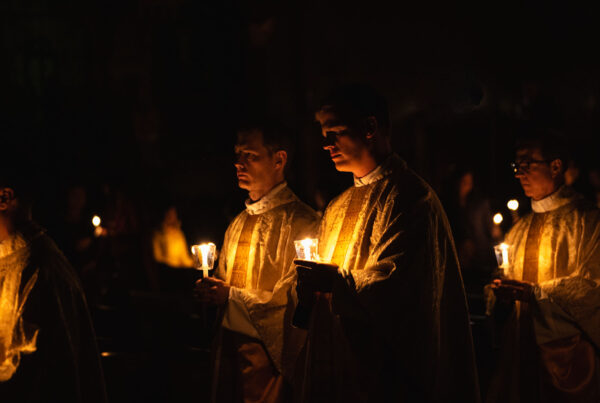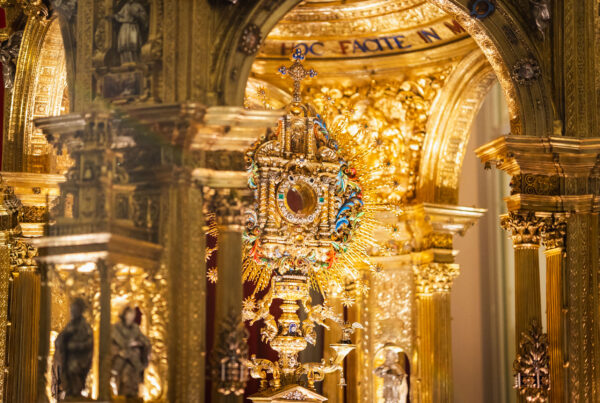What is Holy Hour in the Catholic Church?
The practice of spending an hour in prayer before the Blessed Sacrament (Holy Eucharist) is a cherished tradition in the Catholic Church. Known as “Holy Hour,” this practice has its roots deeply embedded in the spirituality of the Church, offering a time for reflection, adoration, and communion with God. Holy Hour is often regarded as a powerful means of strengthening one’s relationship with Christ and nurturing spiritual growth. But what exactly is Holy Hour, and why is it so central to Catholic devotion?
The Origin of Holy Hour
The term “Holy Hour” is most closely associated with the Catholic tradition of adoration of the Blessed Sacrament. It is the practice of spending one hour in prayer before the Eucharist, typically in a church where the consecrated host is displayed in a monstrance. The origins of Holy Hour are often traced back to the late 19th century and the writings of Saint Margaret Mary Alacoque, a French nun who is best known for her devotion to the Sacred Heart of Jesus.
Saint Margaret Mary experienced mystical revelations of Jesus, who asked her to promote devotion to His Sacred Heart. As part of these revelations, Jesus also requested that the faithful spend an hour in prayer, reflecting on His passion and love for humanity. This led to the establishment of what would eventually become the Holy Hour as a devotion.
The practice gained further prominence after the Vatican approved the devotion, and by the 20th century, it had spread to Catholic communities worldwide. In 1921, Pope Benedict XV issued an apostolic letter encouraging the practice of spending an hour in adoration, particularly as a form of reparation for sins and a way to participate in the love and sacrifice of Christ.
The Structure of a Holy Hour
The structure of a Holy Hour is not fixed, meaning that different parishes, spiritual directors, or individuals may approach it in various ways. However, some general elements are typically found in a Holy Hour.
1. Adoration of the Blessed Sacrament: The central focus of the Holy Hour is adoration. The Eucharist, believed by Catholics to be the Body, Blood, Soul, and Divinity of Jesus Christ, is displayed in a monstrance, and the faithful kneel or sit in reverence. The purpose is not only to show respect to the Eucharist but to acknowledge the real presence of Christ among the faithful.
2. Silent Prayer: A significant part of the Holy Hour involves silent prayer, where individuals can speak to God from the heart, meditate on the mysteries of the faith, or simply sit in the presence of the Lord. Silence allows for a deep encounter with God and is seen as an opportunity for personal reflection and spiritual renewal.
3. Scripture Readings: Many Holy Hours include readings from the Bible, especially passages that focus on the life, death, and resurrection of Christ. These readings help to deepen the experience of Christ’s presence and encourage the faithful to contemplate His teachings and sacrifice.
4. Exposition of the Blessed Sacrament: During the Holy Hour, the Eucharist is placed in a monstrance, a sacred vessel designed to hold and display the consecrated host. This practice of exposition allows the faithful to focus their prayers and attention on the physical presence of Christ in the Eucharist.
5. Benediction: In some settings, a Holy Hour concludes with Benediction of the Blessed Sacrament. This involves a priest or deacon offering a blessing over the congregation with the Eucharist. The service concludes with the reposing of the Blessed Sacrament, which is placed back in the Tabernacle.
6. Hymns or Music: Many times, the Holy Hour is accompanied by hymns of praise, songs that glorify God, or instrumental music that fosters a spirit of prayer. Music can help guide the soul to a deeper sense of devotion and reverence.
The Spiritual Significance of Holy Hour
The practice of Holy Hour holds profound spiritual significance in the Catholic tradition. For Catholics, spending time with Christ in the Eucharist is seen as a moment of grace and communion. There are several important reasons why the Holy Hour is encouraged and why it is seen as spiritually beneficial.
1. Union with Christ: The primary purpose of the Holy Hour is to spend time with Jesus, who is present in the Eucharist. Catholics believe that the Eucharist is not just a symbol, but the actual Body, Blood, Soul, and Divinity of Jesus Christ. By spending time in His presence, the faithful deepen their union with Him, strengthen their faith, and renew their commitment to following Him.
2. Prayer and Meditation: Holy Hour offers a dedicated time for prayer and meditation. In the busyness of everyday life, finding time to be alone with God can be difficult. Holy Hour provides an opportunity to pause, reflect, and center oneself in prayer. It also encourages the faithful to meditate on the mysteries of Christ’s life, His suffering, death, and resurrection.
3. Reparation for Sin: One of the traditional purposes of the Holy Hour is to make reparation for the sins of the world. By spending time in adoration and prayer, Catholics offer their devotion as an act of love and atonement for the sins that offend God. This is especially emphasized during Lent and other times of penance.
4. Strengthening of Faith: Spending time in prayer before the Blessed Sacrament is also believed to help strengthen one’s faith. Just as the apostles found strength and comfort in Christ’s presence, Catholics believe that being in the presence of the Eucharist can help them grow in faith and spiritual resolve.
5. Intercession: The faithful can also use the time during the Holy Hour to offer intercessory prayers on behalf of others. This is a time to pray for loved ones, the Church, the world, and anyone in need of God’s grace and mercy. The Eucharistic Lord is believed to be an intercessor for humanity, and praying before the Blessed Sacrament is seen as an opportunity to ask for His help and guidance.
Holy Hour in the Life of a Catholic
For many Catholics, the practice of Holy Hour is not limited to specific occasions. Some parishes offer Holy Hour weekly or even daily, allowing parishioners to make it a regular part of their spiritual lives. For others, it may be a more occasional practice, such as during Lent or other times of spiritual focus.
Holy Hour can be a communal activity or a private devotion. In many parishes, Holy Hour is held on a regular basis, often on Thursdays or Fridays, to coincide with the tradition of the “Holy Hour” that commemorates Christ’s hour of agony in the Garden of Gethsemane before His arrest. Some parishes also offer 24-hour adoration, allowing people to come at any time of day or night to spend an hour in prayer before the Blessed Sacrament.
Individuals may also choose to celebrate Holy Hour at home, particularly in families or small groups. This private devotion can take the form of silent prayer, the reading of Scripture, or the recitation of the rosary. Some people may also participate in online Holy Hours or adoration services offered by religious communities.
The Role of Priests and Religious Communities
In many parishes, the priest plays a crucial role in organizing and leading the Holy Hour. He may lead the prayers, provide spiritual direction, or offer Benediction. Religious communities, especially those with a focus on prayer and contemplation, often have regular Holy Hours as a central part of their spiritual rhythm. For example, cloistered communities of monks and nuns dedicate substantial portions of their day to prayer before the Blessed Sacrament, which may include regular Holy Hours as part of their communal life.
The importance of priests and religious in promoting the Holy Hour cannot be understated. By leading these times of prayer, they help guide the faithful in deepening their spiritual life and commitment to God.
Summary
Holy Hour is a powerful and transformative practice within the Catholic Church. Rooted in the tradition of Eucharistic adoration, it provides a dedicated time for prayer, reflection, and spiritual growth. Whether in a community setting or in private, the Holy Hour offers Catholics a unique opportunity to deepen their relationship with Christ, seek strength in times of difficulty, and make reparation for the sins of the world. Through this sacred hour, the faithful come face-to-face with the real presence of Christ in the Eucharist, renewing their devotion and commitment to His love and mercy. For many, it is a cornerstone of Catholic spirituality and a rich, ongoing source of grace and peace.
Would you like to stay close to the Holy Eucharist all day long?
Now you can, I have 8 Holy Eucharist Wallpapers for you, so you can stay connected with Jesus Christ anywhere you are!

